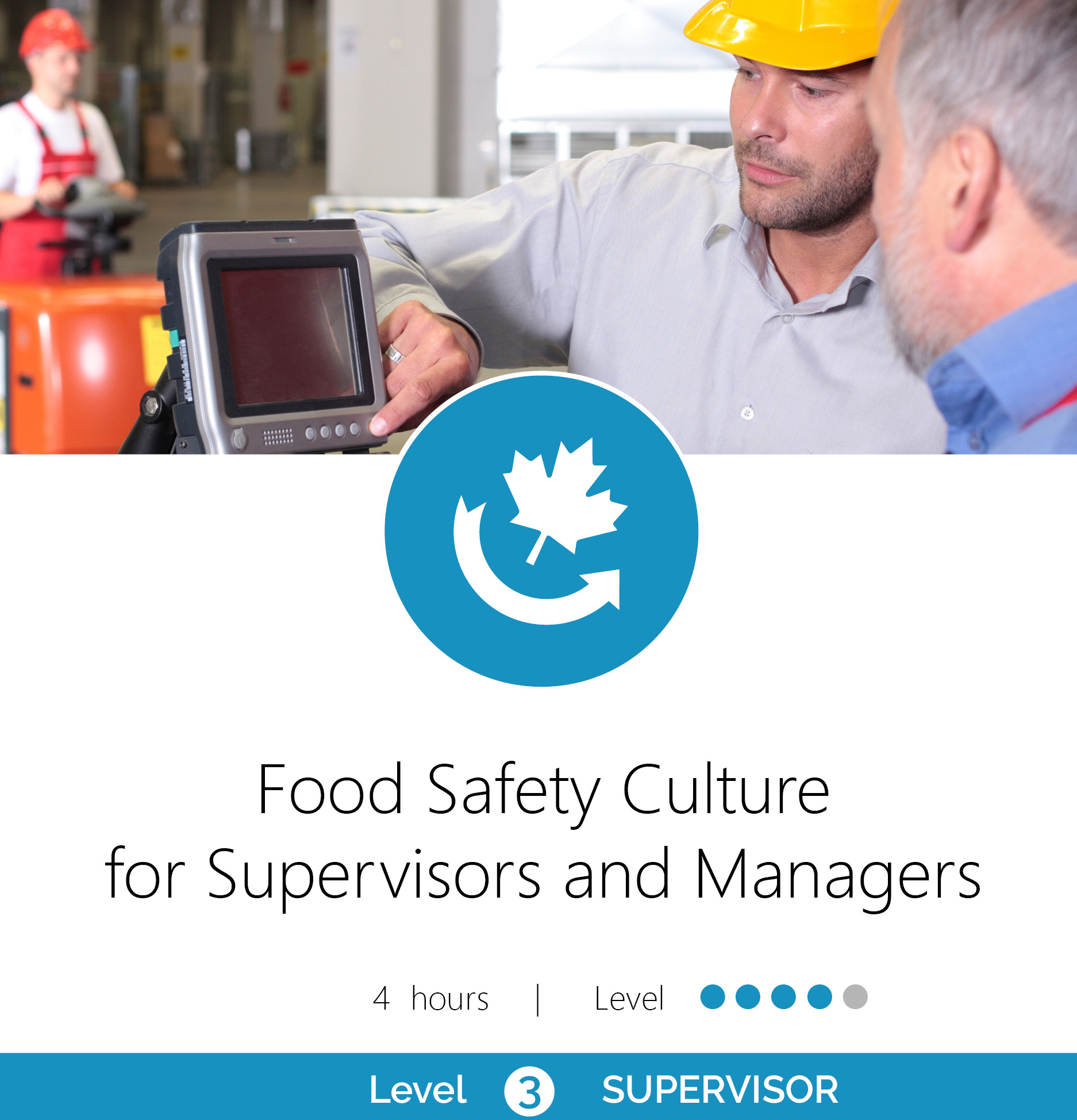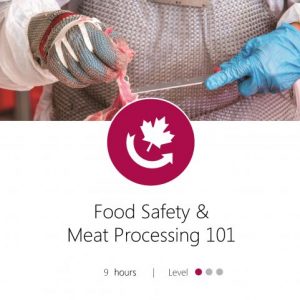Food Safety Culture for Supervisors and Managers
$199.00
This course discusses food safety culture in the workplace and the critical role effective communication, leadership and commitment have on protecting the food supply. Key concepts include identifying the elements of food safety culture, ways and tools to measure food safety. The importance of supervisor and manager active participation and commitment to food safety in creating a workplace environment that encourages desired food safety behavior. Participants will be able to demonstrate their ability to apply, analyze and evaluate facts, principles and concepts as well as show knowledge and comprehension of the material.
Available!
This course discusses food safety culture in the workplace and the critical role effective communication, leadership and commitment have on protecting the food supply. Key concepts include identifying the elements of food safety culture, ways and tools to measure food safety. The importance of supervisor and manager active participation and commitment to food safety in creating a workplace environment that encourages desired food safety behavior. Participants will be able to demonstrate their ability to apply, analyze and evaluate facts, principles and concepts as well as show knowledge and comprehension of the material.
Learning Objectives:
At the end of the course students will be able to:
- Discuss the elements of an organizational culture and how these apply to food safety
- Describe how a food safety culture can affect the food supply
- Encourage communication between employees, supervisors and managers
- Differentiate between leading and managing in the workplace
- Evaluate changes in food safety practices
- Describe effective ways to measure food safety culture acceptance and application in the workplace
Course Outline & Major Topics
- Food Safety Culture in the News
- Maple Leaf Foods: Case Study
- Listeriosis Investigative Review
- Maple Leaf Foods Outbreak: Discussion
- Outbreak Outcomes
- XL Foods: Case Study
- Independent Review Report 2013
- XL Foods Outbreak: Discussion
- Outbreak Outcomes
- Integrating Both Cases
- Case Study Recap
- Effects On the Food Supply and More
- Role of Employees in Supporting Food Safety Culture
- Prevent Potential Outcomes of Non-Compliance
- Science of Food Safety Culture
- Cultural Differences
- Aspects of Canadian Culture
- Canadian Culture: Scenario Power/Hierarchy
- Canadian Culture: Formality
- Canadian culture: Scenario Communication
- Three Levels of Organizational Culture
- Four Categories of Organizational Culture
- Business Subcultures
- Where Does Food Safety Fit?
- Find Evidence of a Company’s Food Safety Culture
- List Evidence of a Food Safety Culture
- Compare Evidence of a Food Safety Culture
- Food Safety Culture Continuum
- A Positive Food Safety Culture
- Common Elements of a Culture
- Multi-Level Factors Influencing Food Safety
- Behaviour-Based Food Safety – The Theory of Planned Behaviour
- Art of Food Safety Culture
- Management vs. Leadership
- Three Phases of Organizational Change
- Social Marketing to Communicate Change for Improvement
- The Diffusion of Innovation Model
- Effective Communication Within a Business
- Evaluating Change in Food Safety Behaviors
- Food Safety Behaviors – Objectives
- Measuring Food Safety
- Reliability and Validity of Measurements
- Validity and reliability: Measuring for Food Safety
- Key Performance Indicators
- Evaluating Change in Food Safety Behaviors – Leading and Lagging Indicators
- Clarifying Qualitative and Quantitative Data
- Assessing Food Safety Culture and Behaviour
- Qualitative Data for Food Safety Culture and Behaviour
- Quantitative Data for Food Safety Culture and Behaviour
- Quantitative Data Analysis and Presentation
- Working with Qualitative Data
- Working with Qualitative Data
- Assess Factors that Influence Food Safety Behavior
- Assessing Culture and Behaviour
*Receive a nationally recognized certificate for participation in this course
Who Should Take This Course?
- Supervisory and Management
- Quality Assurance Teams
- Food Safety Teams
- Sanitation Teams






